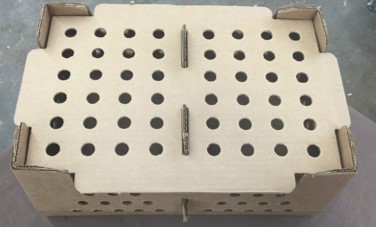Baby Poultry Care
Before you leave home to pick up your baby chicks, make sure your coop is ready first!
1. Make sure the coop is clean and a layer of fresh bedding, wood shavings, have been spread on the coop floor. We do sell these at our store. You can pick them up when you pick up your chicks and then keep the chicks in a warm place while you finish getting the coop ready. DO NOT use straw. It does not keep the coop dry and can result in chick chickens.
2. Turn on the heat. The coop needs to be about 80 degrees with an area that is 90-95 degrees for the first few days. This can easily be accomplished with a heat lamp and a heat bulb. (We have these available at our country store too.)A draft shield is one way you can section off a smaller area of your coop to create a warm place for your chicks. By three weeks of age the warm area only needs to be about 75 degrees. How do you know if your coop is warm enough? If the chicks are all huddled together, they are cold. If the chicks are spread out, eating, and drinking, they are warm enough. If the chicks are panting or have their mouths hanging open, they are too hot.

When you come to our store to pick up your baby chicks, they will be in a box similar to this one. You will want to keep the box warm and dry on the way home. (The back seat of your car, truck or van is perfect.)
Light
If you are using a heat bulb, you have this one covered. If you are not, they you will need to ensure that your broilers have about 8 hours of light a day. A heat bulb or sunlight is best.
The Water
When you get home, double check to make sure the coop is warm. Bring in the water. (We have a variety of waterer's available in our store.) Whatever waterer you choose, you will want to make sure that they do not run out of water the first few days. You will want to check them at least twice a day to make sure.
Sometimes chicks have a hard time finding the water. We like to one-by-one gently dip their beaks into the water as we place them into their new home. If you do this, you will notice that most will begin drinking right away.
Although it isn't required, you can put vitamins and electrolytes into the water. (We sell these in our store too.) Giving chicks vitamins in their water, is basically like you taking your daily vitamin. It just gives the chicks a good strong start.
The Feed
Broiler chicks require a high protein feed (20-21%). We recommend that you begin feeding your chicks a starter feed. (We sell Hubbard Starter Feed in our store.) The starter feed comes as a medicated or a non-medicated feed. You get to choose which one you would like to use. You will feed your chicks approximately one pound of starter and then you can switch to a grower mash. We have specially formatted our Duncan's Poultry Monster Mash so that it has everything your growing broiler needs. (We sell this in our store too.)
All together you will need between 12 and 13 pounds of feed to raise a broiler chick from start to finishing weight. You can take advantage of our Chick 'N Feed Deal to get the best price on your baby chicks.
DO NOT feed your broiler chicks a low protein feed. DO NOT mix the high protein feed with corn. Both of these options will result in poor growth rates and unhealthy chickens.
The Air
Good ventilation is important for your coop. You do not want it to be air tight. You also do not want it to be drafty. If you do not have good enough ventilation in your coop, you may experience an ammonia spike in the coop which can harm the birds. (You will definitely be able to smell the ammonia.)
The Night Before Processing
The night before your processing appointment, you will want to take the feed away. (DO continue to give them water.) You will take the feed away, to make loading in the morning and processing the next day a much cleaner process.
